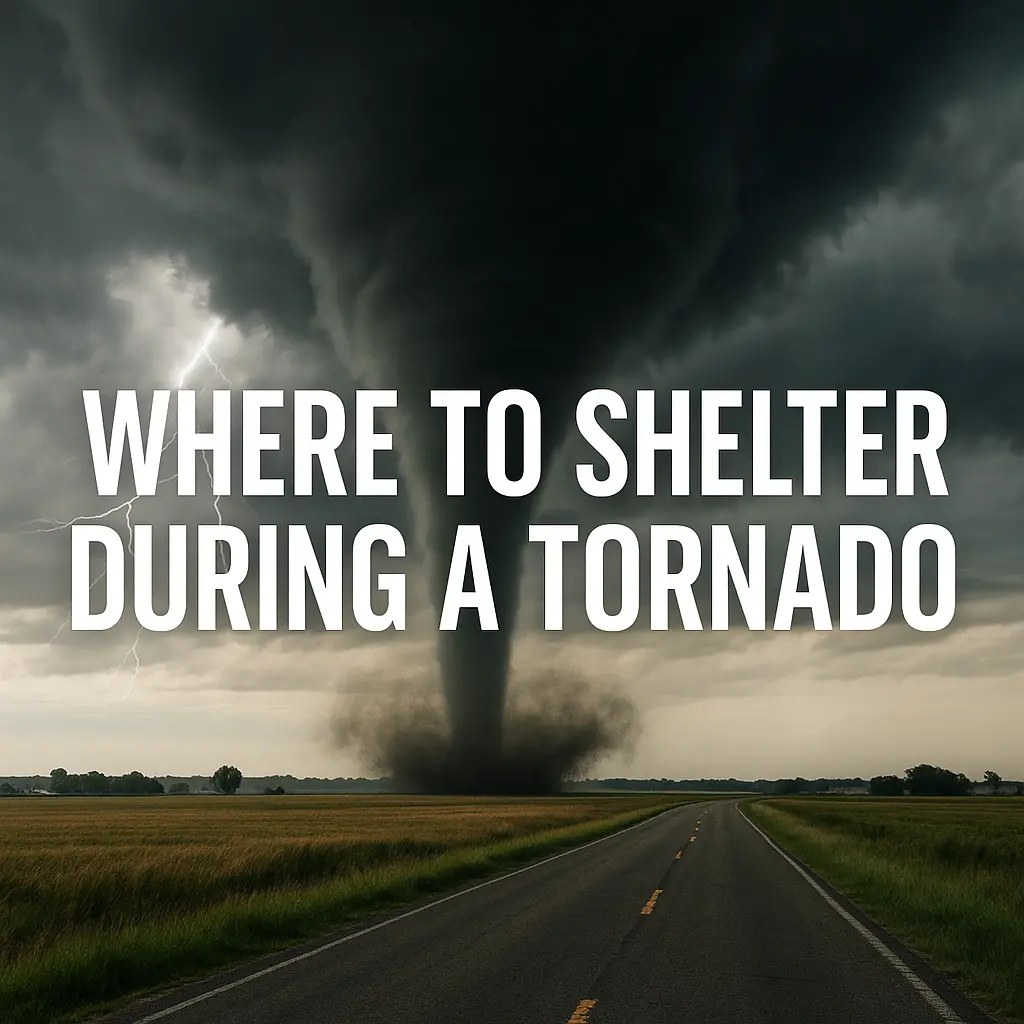 Tornadoes are among the most destructive weather events in the U.S., especially across Tornado Alley. In 2024 alone, over 160 tornadoes touched down in Texas, with Dallas and Tarrant counties continuing to rank in the top 10 for tornado frequency statewide. Oklahoma City saw 34 confirmed tornado events, further highlighting the need for serious preparedness in our region.
Tornadoes are among the most destructive weather events in the U.S., especially across Tornado Alley. In 2024 alone, over 160 tornadoes touched down in Texas, with Dallas and Tarrant counties continuing to rank in the top 10 for tornado frequency statewide. Oklahoma City saw 34 confirmed tornado events, further highlighting the need for serious preparedness in our region.
Having a clear emergency plan and knowing where to shelter can mean the difference between life and death. At Armored Closet, we specialize in helping families protect themselves with in-home safe rooms that are tested to withstand the most extreme weather conditions.
Where To Shelter From A Tornado
If a tornado warning is issued, your first priority should be to get to the safest location in your home. Ideal locations include a basement, cellar, or a professionally installed safe room. If none are available, choose an interior room on the lowest floor of your house, away from windows. Bathrooms, closets, and hallways are common choices.
Additional safety tips during a tornado include:
- Take cover under a sturdy table or workbench and shield your head and neck
- Have a plan for gathering pets and essential items quickly
- Wear hard-soled shoes and, if possible, a helmet for head protection
- Ensure your shelter space is fully stocked with emergency supplies
Remember, tornadoes often damage upper floors, cars, trees, and loose structures. Stay as low as possible and avoid areas with glass or exterior walls.
How An Armored Closet Can Keep You Safe
Not every home has a basement—but every family deserves protection. Installing a storm shelter like an Armored Closet can give your home the safe room it needs, securely built into your existing floor plan.
Our units are built from steel and engineered to meet or exceed FEMA and ICC standards. Designed to withstand F5 tornado impacts and debris, these safe rooms are custom-fit to your available space—whether that’s under stairs, in a garage, or even inside a bedroom closet.
Many of our customers in Texas and Oklahoma have found peace of mind with their Armored Closet. Read their reviews here and see why so many families trust our team for storm season readiness.
Get a Quote Before Summer Storms Hit
Never Shelter in a Mobile Home
If you live in a mobile home or are traveling in an RV, you must evacuate at the first sign of a tornado threat. These structures, even when anchored, are extremely vulnerable to high winds and can easily be flipped or lifted.
Find the nearest secure structure built on a solid foundation. If none are available, lie flat in a low-lying ditch or ravine away from trees and vehicles, covering your head and neck with your arms or a blanket.
Never Try to Outrun a Tornado
Trying to drive away from a tornado is dangerous and often fatal. If you're in a vehicle and cannot reach a safe location in time, your best option is to seek shelter in a nearby sturdy building. Avoid underpasses, bridges, and overpasses as they can become wind tunnels that increase danger.
Always stay informed by checking your local emergency alerts and having a backup weather radio on hand.
Protect Your Family with Armored Closet
Don’t rely on luck. Your family deserves more than a hallway or bathtub when the skies turn violent. An Armored Closet tornado shelter provides real, tested protection inside your home—keeping your loved ones safe from wind, flying debris, and structural collapse.
With installations across North Texas and Oklahoma, we’ve helped thousands of families take safety seriously. Explore your options and see what makes our steel-built safe rooms different.
Request Your Custom Safe Room Quote Today
Frequently Asked Questions
What if I don’t have a basement or safe room?
Use a small, windowless interior room on the lowest floor—like a hallway, closet, or bathroom.
How long should I stay in the shelter?
Stay sheltered until local authorities give the all-clear, even if it seems quiet outside. Tornadoes can have multiple waves.
Is it safe to shelter under a highway overpass?
No. Wind speeds can increase under overpasses, creating a wind tunnel effect. Find a low, flat area or sturdy building instead.
Do tornado sirens always mean a tornado is on the ground?
Not always. Sirens may sound for a tornado warning, which means a tornado is either imminent or spotted by radar.
